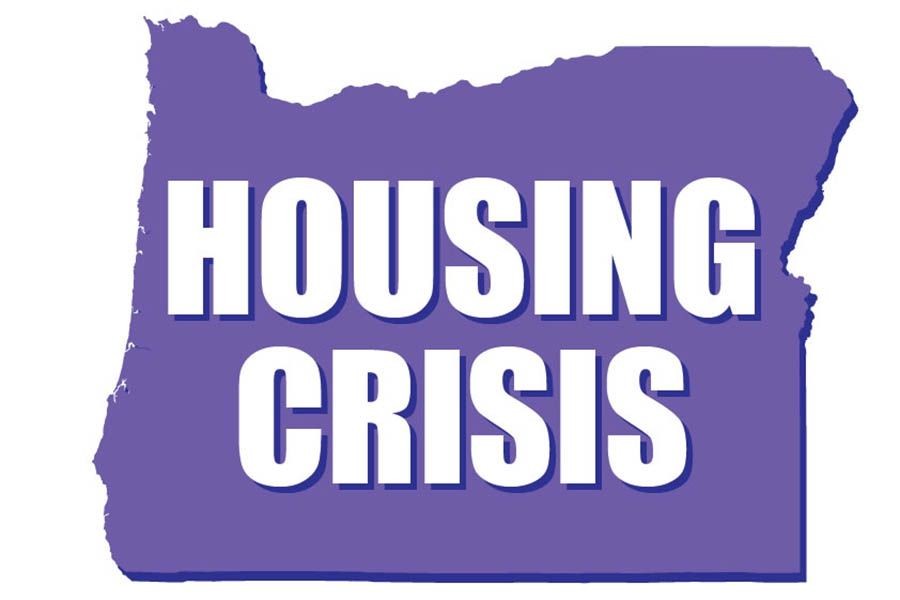New Zealand's housing market stands at a critical juncture, grappling with a crisis that has far-reaching implications on economic stability and social well-being. The surging property prices and a shortage of affordable housing have put immense pressure on both policymakers and citizens. In this article, we delve into ten key strategies that can potentially alleviate New Zealand's housing crisis, backed by data, expert insights, and real-world examples. As these strategies unfold, it becomes clear why they are crucial for New Zealand's future prosperity.
The Current Landscape: A Snapshot of New Zealand's Housing Crisis
Housing affordability in New Zealand has been a persistent issue, with property prices skyrocketing by an alarming 27% over the past year alone (Source: Stats NZ, 2024). This increase is largely driven by a combination of demand outstripping supply and speculative investment activity. The ripple effects are felt across the economy, from strained household budgets to increased homelessness rates.
1. Increasing Housing Supply through Zoning Reform
One of the most effective ways to tackle the housing crisis is by increasing supply, primarily through zoning reform. Current zoning laws in many urban areas limit the density of housing developments, inadvertently contributing to the scarcity of affordable homes. By revising these laws, cities can accommodate higher-density housing projects, which are crucial for expanding supply.
2. Embracing Innovative Construction Technologies
New Zealand can benefit from adopting prefabricated building technologies, which promise faster construction times and reduced costs. This method has already seen success in countries like Sweden, where prefabrication has cut construction time by up to 50%. Applying this technology in New Zealand could significantly reduce the time to market for new housing.
3. Implementing Financial Incentives for First-Time Buyers
Financial incentives such as grants or low-interest loans can make homeownership more accessible for first-time buyers. The KiwiBuild initiative aimed at increasing affordable housing has not fully met its targets, indicating a need for more comprehensive financial support mechanisms for young Kiwis entering the housing market.
Case Study: Sweden's Prefabricated Homes — A Model for New Zealand
Sweden has become a leader in utilizing prefabricated homes, with over 80% of new homes being built using this method. This approach has drastically reduced construction times and costs, making housing more affordable and accessible. For New Zealand, adopting a similar strategy could alleviate some of the supply-side pressures in the housing market.
4. Encouraging Sustainable and Green Building Practices
Sustainability in housing construction not only addresses environmental concerns but also reduces long-term costs for homeowners. Implementing green building standards and providing incentives for developers who adopt eco-friendly practices can create a more sustainable housing market.
5. Strengthening Public-Private Partnerships
Collaborations between the public and private sectors can unlock new avenues for housing development. By pooling resources and expertise, these partnerships can lead to innovative solutions and increased efficiency in housing projects.
6. Regulating Speculative Investment
Speculative investment has been a significant driver of price increases. Implementing regulations to curb speculative activity, such as higher taxes on non-owner-occupied homes, could stabilize the market and make housing more affordable.
Expert Insight: The Role of Monetary Policy in the Housing Market
The Reserve Bank of New Zealand has a pivotal role in influencing housing affordability through monetary policy. By adjusting interest rates, the bank can influence borrowing costs and, subsequently, housing demand. Experts suggest that a balanced approach is necessary to avoid overheating the market while ensuring affordability.
7. Enhancing Urban Infrastructure
Improving infrastructure in urban areas can make peripheral regions more attractive for development. Investments in transportation, utilities, and amenities can decentralize housing demand and reduce pressure on city centers.
8. Providing Social Housing Solutions
Government investment in social housing can provide immediate relief for those most affected by the housing crisis. Expanding social housing projects can provide secure and affordable housing options for low-income families.
9. Encouraging Innovative Financing Models
Shared equity schemes and rent-to-own models offer alternative pathways to homeownership for those who cannot afford traditional mortgages. These models can make homeownership more attainable for middle-income earners.
10. Leveraging Data and Technology for Better Planning
Utilizing big data and advanced analytics can enhance urban planning and housing development. By accurately forecasting demand and identifying trends, policymakers can make informed decisions that align with housing needs.
Contrasting Views: The Debate on Housing Policy Interventions
While many advocate for increased government intervention in the housing market, some experts argue for a market-driven approach. Proponents of intervention emphasize the need for equitable access to housing, while critics caution against potential distortions in the market. A middle ground could involve targeted interventions that address specific market failures without stifling innovation.
Common Myths & Mistakes in Addressing the Housing Crisis
- Myth: "Building more houses will automatically solve the crisis." Reality: Without addressing demand-side factors like speculative investment, simply increasing supply may not reduce prices significantly.
- Myth: "Only large cities face housing issues." Reality: Regional areas are also experiencing affordability challenges due to increased demand and limited supply.
- Myth: "Housing policies don't impact the economy." Reality: The housing market significantly influences consumer spending and economic growth, making policy interventions crucial.
Final Takeaways & Call to Action
- Implement zoning reform to increase housing density and supply.
- Adopt innovative construction technologies to expedite housing projects.
- Provide financial support to first-time buyers to enhance affordability.
- Encourage sustainable building practices for long-term cost savings.
- Foster public-private partnerships to leverage resources and expertise.
New Zealand's housing crisis requires a multifaceted approach that addresses both supply and demand factors. By implementing these strategies, the nation can pave the way for a more equitable and sustainable housing market. What's your take on the proposed solutions? Share your thoughts and join the conversation!
People Also Ask
- How does zoning reform impact housing supply? Zoning reform can significantly increase housing supply by allowing higher-density developments, thereby reducing scarcity and stabilizing prices.
- What are the benefits of prefabricated homes? Prefabricated homes offer reduced construction times and lower costs, making them a viable solution for affordable housing.
- What role does the Reserve Bank of New Zealand play in housing affordability? The Reserve Bank influences housing affordability through monetary policy, affecting borrowing costs and housing demand.
Related Search Queries
- New Zealand housing crisis 2025
- Zoning reform in New Zealand
- Prefabricated homes advantages
- KiwiBuild initiative impact
- Sustainable building practices NZ
- Public-private partnerships housing
- Speculative investment regulations NZ
- Social housing solutions New Zealand
- Innovative financing models for homeownership
- Housing market predictions New Zealand







































Optus Housing
2 months ago